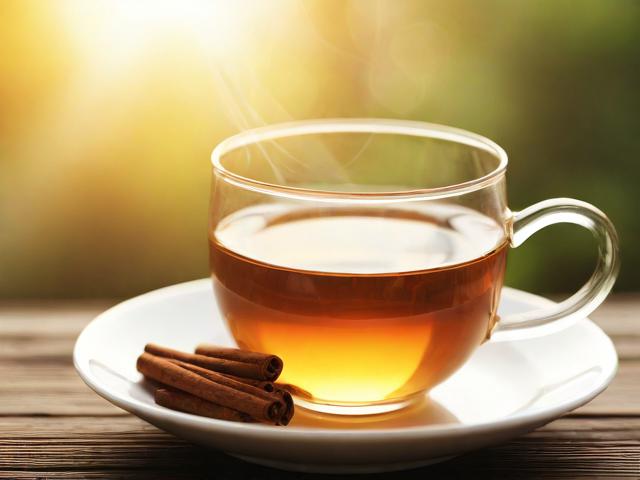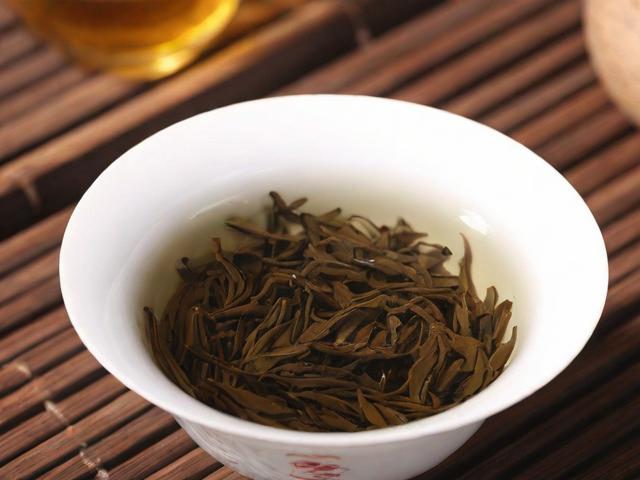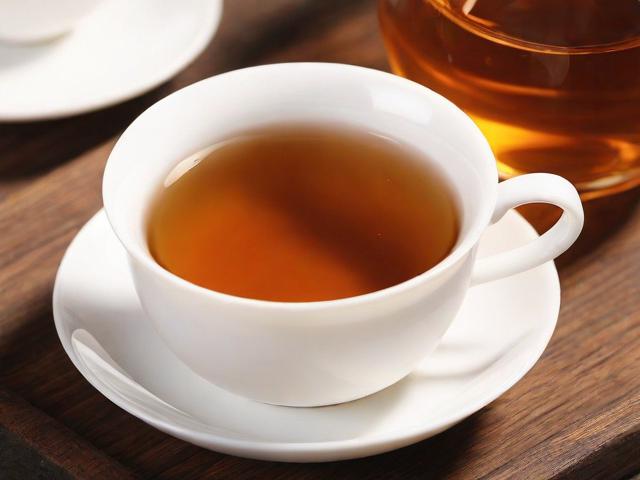When it comes to tea, it’s more than just a beverage—it’s a way of life for many people around the world. This chapter dives into the reasons why drinking tea is so beneficial and explores its cultural importance as well as the most popular types enjoyed globally. Whether you're already a tea enthusiast or new to the world of tea, this introduction will give you a deeper understanding of why it's worth incorporating into your daily routine.
1.1 Overview of Tea Consumption and Its Cultural Significance

Tea has been a staple in cultures across the globe for centuries. In countries like China, Japan, India, and even the UK, tea plays an important role not only as a drink but also as part of rituals and traditions. For example, in Japan, the tea ceremony is a revered practice that emphasizes mindfulness and respect. It’s amazing how something as simple as steeping leaves in hot water can carry such deep meaning.
Think about it—when you sip on a cup of tea, you’re connecting with history and culture. People have been doing this for thousands of years! The act of brewing and enjoying tea often brings people together, whether it’s during family gatherings or casual get-togethers with friends. That shared experience adds another layer of significance to the drink itself.
1.2 Common Types of Tea and Their Popularity Worldwide
Now let’s talk about the different kinds of tea that are loved all over the world. Black tea, green tea, white tea, oolong tea, and herbal teas each offer unique flavors and health benefits. Black tea, known for its robust taste, is particularly popular in Western countries. On the other hand, green tea, which is famous for its antioxidants, is widely consumed in Asia. Each type appeals to different tastes and preferences, making tea accessible to everyone.
As I travel, I love discovering how various regions embrace their own signature teas. For instance, in Morocco, mint tea is a must-try, while chai spiced tea is essential in India. These local favorites reflect the diversity within the tea-drinking community. No matter where you go, there’s always a new flavor or tradition waiting to be explored. It’s no wonder why tea remains one of the most beloved beverages worldwide.
In this chapter, we’ll explore the incredible benefits that come with drinking tea regularly. From boosting your health to improving mental clarity and even fighting against aging, tea offers advantages that go far beyond just quenching thirst. Let’s dive into how incorporating tea into your lifestyle can make a positive impact on both body and mind.
2.1 Health Benefits: Boosting Immunity and Enhancing Metabolism
When I first started drinking tea consistently, I noticed something interesting—my energy levels were higher, and I seemed to get sick less often. This is because many types of tea contain powerful antioxidants like catechins and flavonoids, which help strengthen the immune system. For example, green tea has been studied extensively for its ability to fight off infections and reduce inflammation. It’s amazing how such a simple drink can play such a crucial role in keeping us healthy.
On top of that, tea also helps enhance metabolism, especially if you’re looking to manage weight or stay active. Herbal teas like peppermint or ginger are great options for aiding digestion after meals, while black tea contains compounds that support fat oxidation. These natural properties make tea an excellent choice for anyone who wants to feel lighter and more energized throughout the day. Drinking it regularly feels like giving my body a little extra care without needing supplements or pills.
2.2 Mental Well-being: Stress Reduction and Improved Focus
Tea isn’t just good for the body—it does wonders for the mind too. One of the reasons I love sipping on a warm cup of tea is the calming effect it has. Many teas, particularly chamomile and lavender-infused varieties, have been shown to lower stress levels by promoting relaxation. When life gets overwhelming, taking a few minutes to enjoy a soothing tea session helps me reset and recharge.
But here’s another cool thing about tea—it doesn’t just calm you down; it also sharpens focus. Matcha, a type of powdered green tea, contains L-theanine, an amino acid that promotes mental clarity while reducing anxiety. So whether you need to concentrate on work or unwind at the end of a long day, tea provides the perfect balance. It’s become one of my go-to rituals whenever I want to clear my thoughts or boost productivity.
2.3 Long-term Effects: Anti-aging Properties and Disease Prevention
The benefits of tea don’t stop there—they extend to long-term wellness as well. Over time, regular tea consumption may contribute to anti-aging effects due to its high concentration of antioxidants. These antioxidants neutralize free radicals in the body, which are responsible for premature aging and cellular damage. Imagine slowing down the clock just by enjoying a daily cup of tea!

Additionally, studies suggest that certain teas might help prevent chronic diseases like heart disease, diabetes, and even some forms of cancer. For instance, oolong tea has been linked to improved cholesterol levels, while white tea shows promise in protecting skin health. Knowing these potential long-term benefits makes every sip feel worthwhile. It’s comforting to think that something so enjoyable could also be contributing to a healthier future.
Now that we’ve covered the amazing advantages of drinking tea, let’s focus on how to get the most out of your tea experience. This chapter will provide actionable tips to help you choose the right tea, brew it perfectly, and incorporate it into your daily routine. Whether you're a beginner or already a tea enthusiast, these practical strategies can elevate your enjoyment while maximizing the health benefits.
3.1 Choosing the Right Tea Based on Personal Needs
When I first started exploring different types of tea, I realized there's no one-size-fits-all approach. Everyone has unique needs, preferences, and goals when it comes to their tea choices. For example, if you're someone who struggles with stress, chamomile or lavender teas might be perfect for calming your mind. On the other hand, if you’re aiming to boost energy during the day, matcha or green tea could do wonders for keeping you alert without the jittery feeling coffee sometimes brings.
It’s also important to consider any specific health goals you have. If weight management is on your list, herbal teas like peppermint or ginger are excellent options for supporting digestion. Or maybe you're focused on heart health—black tea or oolong tea might suit you better since they've been associated with improving cholesterol levels. By matching your personal needs with the right type of tea, you'll not only enjoy the flavor but also reap tailored benefits.
3.2 Optimal Brewing Techniques for Maximum Effectiveness
Once you've chosen the perfect tea, the next step is brewing it correctly. Proper preparation ensures you unlock all the goodness packed inside each leaf. Let me share what I've learned over time: temperature matters! Not all teas require boiling water. For instance, delicate green teas thrive in water heated between 70-80°C (158-176°F), whereas robust black teas prefer near-boiling temperatures around 90-100°C (194-212°F).
Timing plays another crucial role. Over-steeping can lead to bitterness, which ruins the natural taste and may even affect the beneficial compounds. A general guideline is steeping green tea for about 2-3 minutes, white tea for 4-5 minutes, and black tea for 3-5 minutes. Of course, every brand and variety differs slightly, so always check the instructions on the packaging. Taking care of these small details transforms an ordinary cup of tea into something truly special.
3.3 Incorporating Tea into Daily Routine for Consistent Benefits
To fully benefit from tea, consistency is key. But how do you make it part of your everyday life? Personally, I find setting aside specific times works best. In the morning, I love starting my day with a warm cup of green tea—it wakes me up gently and sets a positive tone. After lunch, I often switch to a digestive-friendly option like peppermint tea to aid in breaking down food. And before bed, chamomile helps relax my body and mind.
Another great idea is carrying a reusable thermos filled with your favorite tea wherever you go. That way, whether you're at work, running errands, or traveling, you always have access to this refreshing beverage. Plus, preparing large batches of herbal infusions ahead of time saves effort and keeps you hydrated throughout the day. When tea becomes a habit rather than just an occasional treat, its positive effects become much more noticeable.
By following these simple yet effective tips, you’ll turn tea-drinking into a rewarding ritual that enhances both your physical and mental well-being. Enjoy the journey!



发表评论